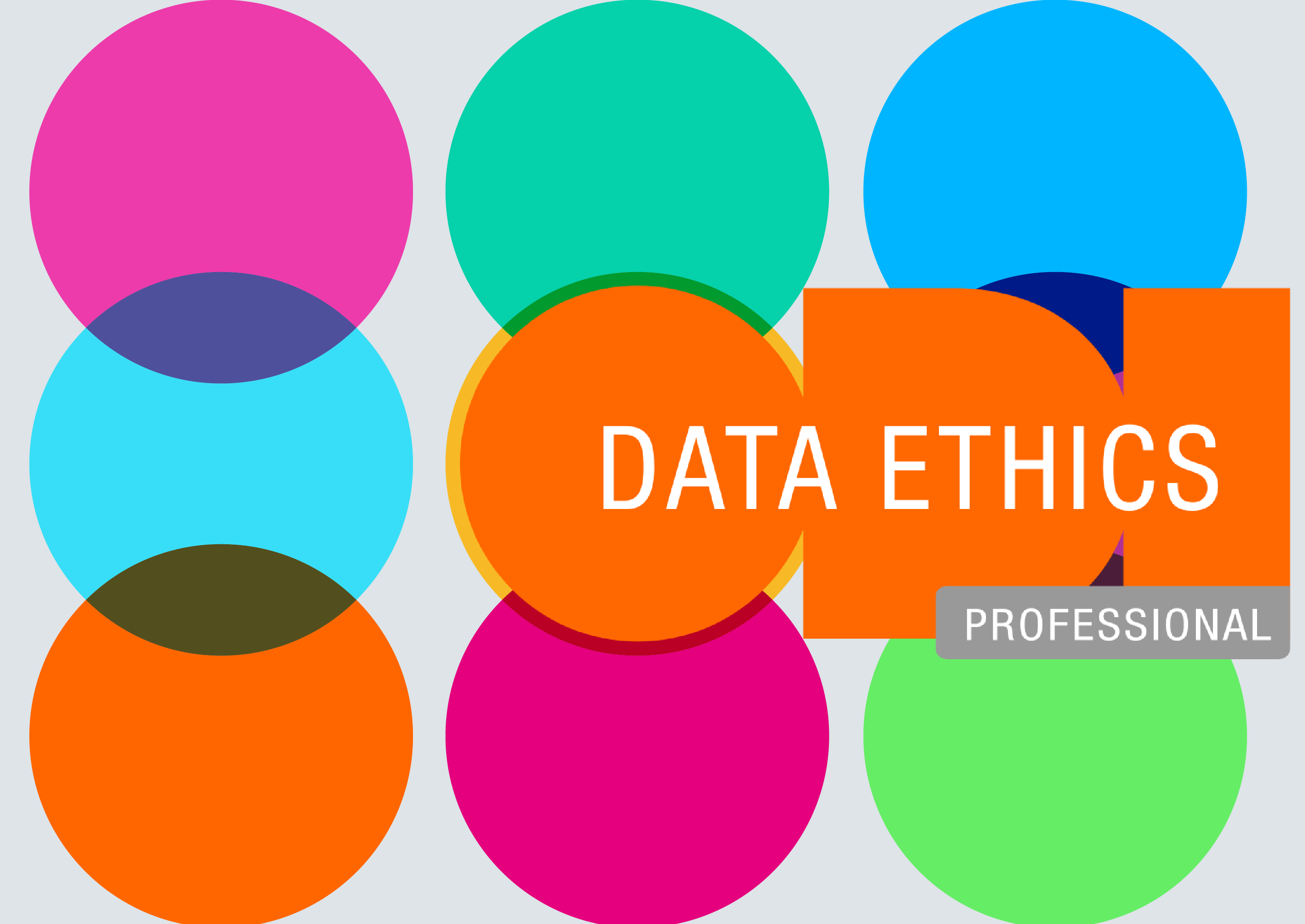Data literacy and capability for everyone
Improving the data literacy of our workforce is essential to help organisations evolve their data practices and get more value from data. Improving data literacy will help organisations build effective data focussed business models, create good data governance processes and practices, and become more trusted with data as a result.
Your learning journey
Our online learning courses are an opportunity to develop data skills with the support of the ODI’s expert trainers. Through interactive webinars and online learning platforms you will engage with your learning group, share ideas, gain help when needed and access a wide range of interactive learning resources.
At the ODI we use our Data Skills Framework to show the blend of skills required to get the best out of data. We use this, combined with EQF Level 4 & 5 outcomes, to build ‘foundational’ data literacy courses that anyone with a basic education can attend and learn from.
Try our Data Ethics Essentials course for FREE & set the foundation for your learning journey
Eager to dive into the realm of data ethics and AI without any cost? Our exclusive taster content is designed to ignite your passion for ethical data practices—all at no charge!
Put your data ethics knowledge to the test
Unlock the Future of Responsible Data Practices with ODI's Learning Pathways!
Discover the Open Data Institute's comprehensive learning pathway offerings . Whether you're just starting out or seeking to master the realm of data, we have the perfect courses to boost your knowledge and transform your organisation.
Embark on your Data Ethics Journey
Dive into our range of meticulously crafted courses designed to suit your learning preferences.
Explore our online Tutored Introduction to Data Ethics course and learn about how data ethics can be applied to help organisations avoid harmful impacts and increase trust in new products and services.
If self-paced learning suits you best and you're keen to discover the ‘why’ behind data ethics and its vital significance in today’s data-drive and AI world, check out our Understanding Data Ethics and AI course . This course provides you with a solid foundation of data ethics as a branch of ethics, and how this manifests itself within your professional context and use of data in the creation of products and services, and use of technologies such as AI. ,
As you progress through our data ethics courses, you'll find yourself reflecting on your own professional journey, armed with cutting-edge tools and frameworks that instil critical thinking about you and your organisations data practices.
Elevate Your Expertise!
But why stop there? Elevate your expertise and embark on an exciting trajectory towards mastery. If you aspire to be at the forefront of the ethical data revolution, our Data Ethics Professional programme is your ticket to becoming a certified expert, recognized by none other than the Open Data institute, founded by Sir Tim Berners-Lee and Sir Nigel Shadbolt.
Join our Community of Ethical Data Innovators by enrolling in the ODI's data ethics learning pathway, you're not just gaining knowledge – you're becoming a part of a vibrant community of like-minded individuals, committed to shaping a future where data is harnessed responsibly and ethically.
Embark on your Strategic Data Skills Journey
Are you ready to transform how organisations harness the potential of data?
Welcome to the Strategic Data Skills Learning Pathway – your gateway to mastering the art of generating strategic insights from dataand making impactful decisions that drive success!
Why Choose Strategic Data Skills?
Data-Driven Decision Excellence
Unlock the secrets to better decision-making through data. Our course is strategically designed to unlock your full potential and empowers you with the techniques and insights needed to transform raw data into actionable intelligence. Gain the confidence to drive organisational success with data-informed strategies.
Learn about the significance of building a healthy data ecosystem for optimal value extraction. Developing data cleansing, and validation techniques, uncover valuable insights and tell your story through impactful data visualisations and narratives that resonate.
We understand that every learner is unique, and that's why we're thrilled to present not one, but two exceptional pathways to elevate your strategic data skills. Whether you're seeking the dynamic support of a group learning experience or the flexibility of self-paced exploration, we've got you covered.
Option 1: Collaborative Mastery with Expert Tutor Guidance
Picture this: a vibrant community of learners, supported by the expertise of ODI's seasoned tutors. In this immersive option, you'll journey alongside fellow enthusiasts, engaging in deep dive discussions and collaborative activities that foster dynamic insights. Your growth won't go unnoticed – our expert tutors will provide personalised feedback on your assessed work, ensuring you're not just learning, but truly mastering strategic data skills.
Option 2: Self-Paced Mastery with AI-Powered Support
For those who thrive in their own rhythm, our second option offers the flexibility you crave without compromising on quality. Dive into our self-directed comprehensive course, spanning 15 hours of immersive content. And guess what? You won't be alone on this journey. Meet your trusty companion – the ODI AI tutor assistant. Equipped with the latest in AI technology, it provides robust feedback on your assignments, ensuring you're always on the right track. This tailored learning course gives you the power to pause, rewind, and review at your pace.
Enrol now to become a strategic data leader!
Navigating beyond Strategic Data Skills: Two Exciting Learning Pathways Await!
Your journey beyond Strategic Data Skills is uniquely yours to define. Whether you're passionate about integrating ethical considerations into your data practices or yearn to dive deeper into web-based data publication, the ODI has meticulously crafted pathways that align with your aspirations.
Pathway 1: Data Ethics Integration Pathway
As a savvy data professional, you understand that ethical considerations are the cornerstone of responsible data practices. Seamlessly extend your strategic data skills knowledge by embarking on the Data Ethics pathway. In this immersive journey, you'll dive deeper into the intricate world of ethical data handling, honing your ability to strike the perfect balance between impact and integrity.
Pathway 2: Best Practices for data on the Web
Ready to take your strategic data skills to the next level? Embark on this advanced pathway, where you'll discover the art of fine-tuning your data prowess for optimal impact.
This online tutored pathway equips learners to adhere to W3C industry standards for data publication on the web allowing for rich, accessible, reliable, usable and linked data.
Embark on a Transformative Journey with 'Open Data in a Day'
At the Open Data Institute (ODI), we believe that the world of data holds limitless potential – and we're here to help you harness it. Introducing our dynamic online tutored course, 'Open Data in a Day'; immerse yourself in real-world stories of triumphant open data projects that have sparked innovation and transformation across various sectors
In just one engaging day, you'll dive headfirst into the captivating realm of open data. Led by expert instructors in a live, interactive online environment, you'll explore the breadth and depth of open data's possibilities.
This course is targeted towards a diverse range of individuals who understand the value of data and seek to leverage it for organisational success. From decision makers and managers in private companies to civil servants, researchers, policy advisors, journalists, students, and more, 'Open Data in a Day' is your gateway to a world of insights.
Continue your learning journey and unleash the power of Data Ethics
As you journey through 'Open Data in a Day,' you'll gain a great foundation in open data concepts, paving the way for your potential progression into our Data Ethics Pathway. With the skills you cultivate here, you'll be primed to tackle the ethical dimensions of data and lead your organisation towards a more responsible, impactful future.
Evolve as a data enthusiast and become a strategic thinker
Now equipped with the foundational understanding of open data, take the next step on your journey seamlessly transitioning into ODI's Strategic Data Skills course. In this comprehensive pathway, you will master the art of generating strategic insights from data and making impactful decisions that drive success!
The beauty of this pathway lies in its continuity. With 'Open Data in a Day,' you've established a solid grounding in open data concepts, and by progressing to our Strategic Data Skills course, you're cultivating the finesse required to navigate the complexities of today's data-driven world.
Master Anonymisation with ODI's Anonymisation is for everyone Learning Pathway
In the ever-evolving landscape of data privacy, the power of anonymisation is paramount. Gain a structured approach to anonymisation, equipping you with the skills to lead transformative projects confidently.
If you're a decision-maker looking to navigate the intricate world of data privacy, this course is tailor-made for you. Compliance professionals, technical managers, product owners, and service managers – all will find value in this enriching journey.
Discover how tools like the ODI Data Ethics Canvas and Consequence Scanning toolkit can guide you in aligning anonymisation efforts with ethical considerations.
This course offers a gateway into 2 key ODI Pathways
Pathway 1: Data Ethics Journey
Deepen your understanding of ethical considerations in data practices by embarking on the Data Ethics Pathway. Extend your skills to ensure not just privacy, but responsible and ethical use of data. Learn to evaluate impacts, identify concerns, and craft recommendations to navigate the intricacies of data ethics.
Pathway 2: Strategic Data Skills Advancement
For those who aspire to sharpen their decision-making skills, the Strategic Data Skills Course is your next destination. Develop your mastery in strategic data analysis, visualisation, and interpretation, equipping yourself to lead with insights and confidence.
Master the art of Applying Machine Learning and AI techniques to data
Introducing our 5-hour course, where you'll learn to apply cutting-edge techniques to data and embrace a practical approach to machine learning, gaining expertise in key techniques and understanding their implications. Identify real-world applications of machine learning, equipping yourself with the insights to harness its potential across various domains.
This course offers a seamless progression from Machine Learning & AI techniques to our Understanding Data Ethics and AI course . This course provides you with a solid foundation of data ethics as a branch of ethics, and how this manifests itself within your professional context and use of data in the creation of products and services, and use of technologies such as AI. ,. This next step ensures your learning journey is not only powerful but also ethically responsible. With the foundation laid through our machine learning course, you've gained essential insights into harnessing data's potential.. Build upon this expertise by honing your ability to make ethical decisions in data-driven contexts.
Our Courses
We aim to provide everyone hands-on experiences of working with data where they can discover for themselves the implications of data on business and society. Our goal is to help everyone become more data literate and confident with applying their skills back in their organisations.
Building a Healthy Data Ecosystem (micro-course)
Upskill in the foundations of data and learn how to embed a robust and efficient data infrastructure.Organising and Validating Data (micro-course)
Learn best practices to clean data, improve its quality, accuracy and reliability. Gain confidence in working and managing data.An Introduction to Data Analysis (micro-course)
Strategic Data Skills (self-paced)
A comprehensive course designed for individuals seeking to work strategically with data without delving into complex programming concepts.
Understanding Data Ethics & AI
Knowledge and tools to understand the realm of data ethics and apply them effectively in professional settings. Examine data ethics within your professional practice.
 Short Course
Short Course
Introduction to Data Ethics
This two-hour online course gives an introduction to the concept of data ethics, how it is addressed in other domains, and how data ethics can be applied to help ...
 Certified Programme
Certified Programme
Data Ethics Professional
This course aims to certify those who can demonstrate the knowledge, skills and ability, to apply tools and help others make better use of data, whilst minimising harmful impacts...
 Short Course
Short Course
Open Data in a Day
Learn how to discover, use and describe the benefits of open data, and how it impacts your organisation on this live, instructor-led, online and interactive course.
 Learning Programme
Learning Programme
Strategic Data Skills
Will equip you with the theoretical knowledge, practical skills and technical know-how to make better decisions using data. It’s a comprehensive course for people who want ...
 FREE Course
FREE Course
Open Data Essentials [FREE]
This programme has been designed to enable you to discover what open data is and how it is changing the lives of everyone on our planet.
Beginner Level.
 Free Course
Free Course
Finding Stories in Data [FREE]
When effectively analysed and presented in a clear and compelling way, data has the potential to create impact. ..
Intermediate Level.
Data Ethics Essentials [FREE]
Embrace AI with Confidence by explore the fundamental principles and real-world applications of ethical data handling, ensuring you stay ahead in this data-driven world.
Beginner Level.
Put your data ethics knowledge to the test
The assignments were the highlight of the course. They were well designed – it’s good to use real live data from a different sphere than I’m used to working in. And I really liked how they built on the previous assignment learnings.
Digital Analyst, Boots
This has been an eye-opening journey for me. Looking at data over the last six weeks I learned to understand it’s value, different ways of looking at it, the impact it can have on people’s lives and the value of predicting the future.
Gretl M
This course has been awesome and a great stepping stone to build confidence in using data no matter which industry you are from.
Director, Qina Consulting
Our Team

Gráinne O'Neil
Head of Learning
Dr David Tarrant
Academic Lead
Tom Pieroni
Learning Manager
Dr Kay Achenbach
Data Trainer
Lucy Knight
Data Trainer
Jack Schofield
Learning Developer
Siobhan Donegan
Learning Coordinator
Lou Lynch
Multimedia DesignerWould you like to develop data skills across your whole team or organisation?
Our courses can be run for groups of up to 14 people. And, we can tailor our content to your context and needs. We can work with you to identify the data skills required across your business, creating training that meets your organisation’s needs. Our training approaches include: e-learning, interactive and virtual workshops, games and blended learning programmes.
Contact our Data Skills Experts to discuss how we can improve your organisations data literacy.
.png?width=121&height=56&name=learning-150-Blue-L%20(1).png)